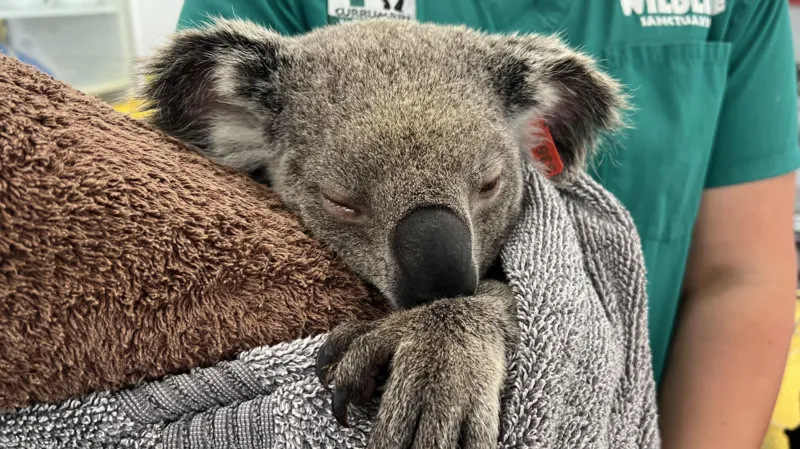Saving ‘old and wise’ animals vital for species’ survival - scientists
Hunting bigger, more experienced animals eradicates memories and knowledge crucial to group survival, research suggests.

It’s not just humans who get wiser as they age – animals do too, according to a growing body of research. The bigmouth buffalo fish can reach 127 years old, the Greenland shark 392, and some sponges can live for 10,000 years or more. And age is not just a number: as animals get older they behave differently depending on their life experiences, gain richer knowledge of their environment, and often pass it on to younger members of their group, researchers say.
The problem is, we are killing off these older creatures. “Earth’s old animals are in decline,” researchers warned in a paper published in Science last month, which analysed more than 9,000 peer-reviewed papers. Few animals make it to old age, and the ones that do are vulnerable to being hunted or harvested by humans, because they are the biggest or have, for example, the largest antlers, horns or tusks.
Eliminating the largest and most experienced animals can have significant consequences for group culture and social structures, researchers warn, as they argue for a new approach called “longevity conservation”.
Much research on ageing has focused on negative health aspects, says lead researcher Keller Kopf, an ecologist at Charles Darwin University in Australia. “That simplistic idea about old individuals not being important for populations, or for environments, is really not the full story,” he says. The more he examined different groups of animals, the more he stumbled on remarkable instances demonstrating the value of older creatures. “No matter where we looked, there were good examples,” he says.

Corals, sponges, and marine algae living in a bed of rhodoliths. Deep sea corals can be thousands of years old and provide important shelter for marine life. Photograph: AP
Primates, whales, elephants and pack-hunting animals all have old individuals who carry vital cultural knowledge and maintain social structures, according to the paper. Older female elephants, for example, have a “social memory” of who is a friend or foe, and are more attuned to potential dangers such as listening out for lions. Postmenopausal orcas are best at finding salmon foraging grounds.
The research shows that removing older individuals results in populations becoming more volatile over time, sometimes eventually collapsing.
Older birds can provide better food and care for their offspring, and deep-sea corals that can grow to be thousands of years old can provide important shelter for marine mammals. Although older mammals may produce fewer offspring themselves, they help their offspring produce and look after young ones. This is called the “grandmother hypothesis” of healthy populations, which was first studied in humans, but has also been explored in elephants and orcas.
Imagine a fish in the ocean. The chances of finding the best feeding or breeding locations by chance is virtually zero - Culum Brown, fish biologist
Culum Brown, a fish biologist at Macquarie University in Sydney, who was not part of the latest study, says killing older members of a species is likely to be a big problem for fisheries management. Taking big fish diminishes a population’s collective memory. “The key thing here is that many important behaviours such as migration to breeding and feeding grounds are transmitted socially in lots of species of fish,” says Brown.
“Imagine a fish swimming around in the ocean. The chances of finding the best feeding or breeding locations by chance is virtually zero. This is why following successful strategies passed on through generations is so important,” Brown says.
Generally, as mammalian mothers get older, their reproductive output declines, but that is not the case for fish and reptiles – the number of offspring a fish has increases with age, and those offspring may also have higher chances of survival.
“Older individuals are likely to harbour important cultural knowledge so if our fishing practices are aimed at catching these individuals then the culture collapses,” says Kopf. “The trouble is once culture is lost it is very hard to regain.” This would explain, he adds, why many fish populations have not recovered, even after fishing moratoriums.

A Greenland shark in the Uummannaq fjord in northwestern Greenland. Photograph: Reuters
Kopf’s paper refers to the importance of “cultural transmission” that not only recognises that animals have culture, but that these individuals transmit their social learning to other individuals. Older individuals tend to have accumulated the most knowledge, such as how to locate water during dry periods, find safe places to shelter and find new foods during times of scarcity.
More broadly, there is a growing realisation among conservation practitioners that we need to pay far more attention to social learning and culture in animals – and to the way it accumulates in individual creatures. “A term that has definitely pretty much only been used for people in the past is ‘wisdom’, and we’ve used that term – wise – in the title [of the study],” Kopf says.
The loss of old individuals can be a driving factor for many species threatened with extinction, he continues. “It’s not currently recognised [by the International Union for Conservation of Nature] but the literature itself has shown that the loss of these old individuals can be a major contributor to the decline of those species.” Older elephants, for example, have important functions in social groups, but are systematically hunted for their trophy status and larger tusks.
Kopf and his co-authors are calling for “longevity conservation” – which would mean targeted policies to protect old individuals. Authors state: “Old animals play a vital role in the maintenance of biodiversity and ecosystem services and therefore … require dedicated policy directives, political motivation and careful management.”
On a more personal level, the discovery of the importance of older animals made Kopf think more about our own species. “It’s made me think a lot more about how we don’t value older people in our society. Many people of advanced ages are forgotten about,” he says. This is a loss not only for the old people themselves, but for all of human society, he says. “What is that doing for the modern world?”
Source: The Guardian




















:max_bytes(150000):strip_icc():format(webp)/Health-GettyImages-WalkingBeforeOrAfterEating-8163e09e54e849e6bdff75aec25f55db.jpg)
:max_bytes(150000):strip_icc():format(webp)/Health-GettyImages-SugarVsSugarAlcohol-b00b016d36a54d58bc6ef22f74d35628.jpg)
:max_bytes(150000):strip_icc():format(webp)/Health-GettyImages-1490455140-867589cab1104d58b38a8c29bdc3bba0.jpg)
































